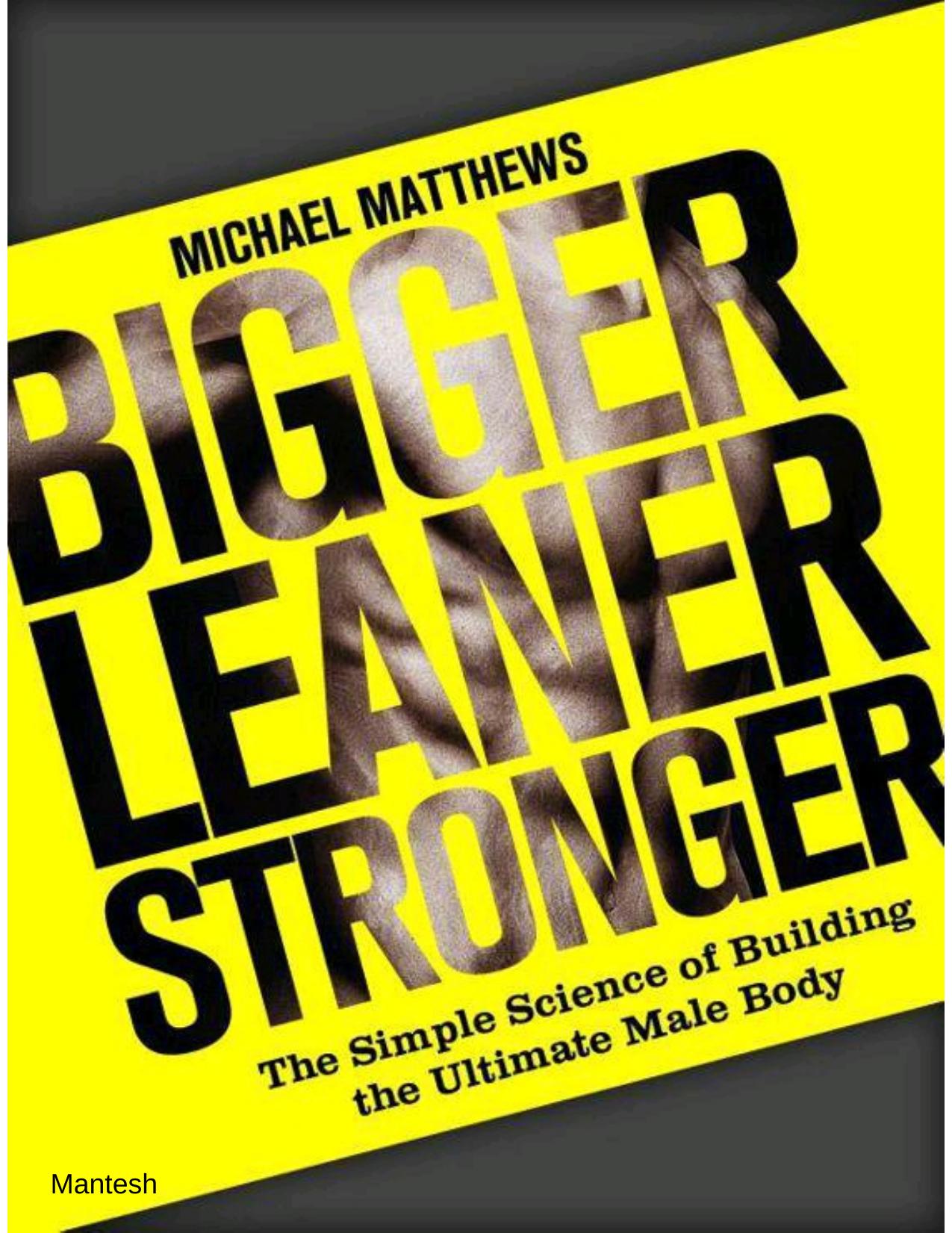Bigger Leaner Stronger: The Simple Science of Building the Ultimate Male Body (The Build Healthy Muscle Series) by Matthews Michael

Author:Matthews, Michael [Matthews, Michael]
Language: eng
Format: epub, azw, pdf
Publisher: Waterbury Publishers, Inc.
Published: 2012-01-13T05:00:00+00:00
THE PRE-WORKOUT MEAL: 30 – 30 – 30
About 30 minutes before training, you want to eat about 30 grams of high-GI carbs and about 30 grams of fast-digesting protein (such as whey).
The carbs will not only give you energy to fuel your workout, they will trigger the release of insulin, which counteracts the effects of cortisol and, according to a study done at the University of Oklahoma, increases blood flow to the muscles and protein synthesis.
The protein will get amino acids into your blood stream, immediately available for repair as you start to break down the muscle fibers by lifting weights.
THE POST-WORKOUT MEAL
Many guys are surprised to learn how important eating a post-workout meal is.
Studies have universally shown that eating carbs and protein after intense weight training leads to greater development of lean mass, decreases in body fat, and overall improvements in body composition.
When you finish training, your body is in a highly anabolic state, and it will absorb glucose, glycogen, and amino acids at a higher rate than normal. However, if you waste this window and don’t feed your body, you can actually halt muscle growth and hinder fat loss.
Therefore, it’s vitally important to eat within an hour of finishing your weight training (but not cardio workouts, as they don’t deplete glycogen levels like weight training), and to eat a substantial amount of carbs, and a moderate amount of protein.
For most guys, a post-workout meal includes about 80 grams of medium-to-high-GI carbs. This may sound like a lot, and it is, but your body needs them. (Don’t worry—we will work out your exact numbers soon.)
PRE-SLEEP MEAL
A slow-digesting protein should be the last meal of the night, and should be consumed immediately before going to bed. I like egg protein powder or 0% fat Greek yogurt or low-fat cottage cheese, but casein is another common choice.
This last bit of protein is important because your body is about to fast for 6 – 8 hours, and when the protein you eat before bed is fully digested and utilized, your body will start breaking down muscle. Thus, you want 15 – 20 grams of a slow-digesting protein before bed so that you can minimize or eliminate catabolism.
IT’S TIME TO CHEAT!
Many people struggling with diets talk about “cheat days.” The idea is that if you’re good during the week, you can go buck wild on the weekends and somehow not gain fat. Well, unless you have a very fast metabolism, that’s not how it works. If you follow a strict diet and exercise program, you can expect to lose 1 – 2 pounds per week. If you get too crazy, you can gain it right back over a weekend.
So don’t think cheat DAYS, think cheat MEALS—meals where you eat more or less anything you want (and all other meals of the week follow your meal plan). When done once or twice per week, a cheat meal is not only satisfying, but it actually can speed up your metabolic rate. Scientists aren’t sure why, but it might have to do with a similar factor of muscle growth: overload.
Download
Bigger Leaner Stronger: The Simple Science of Building the Ultimate Male Body (The Build Healthy Muscle Series) by Matthews Michael.azw
Bigger Leaner Stronger: The Simple Science of Building the Ultimate Male Body (The Build Healthy Muscle Series) by Matthews Michael.pdf
This site does not store any files on its server. We only index and link to content provided by other sites. Please contact the content providers to delete copyright contents if any and email us, we'll remove relevant links or contents immediately.
Periodization Training for Sports by Tudor Bompa(8250)
Bodyweight Strength Training by Jay Cardiello(7902)
Born to Run: by Christopher McDougall(7120)
Inner Engineering: A Yogi's Guide to Joy by Sadhguru(6785)
Asking the Right Questions: A Guide to Critical Thinking by M. Neil Browne & Stuart M. Keeley(5752)
The Fat Loss Plan by Joe Wicks(4903)
Bodyweight Strength Training Anatomy by Bret Contreras(4666)
Yoga Anatomy by Kaminoff Leslie(4355)
Dynamic Alignment Through Imagery by Eric Franklin(4206)
Science and Development of Muscle Hypertrophy by Brad Schoenfeld(4122)
Exercise Technique Manual for Resistance Training by National Strength & Conditioning Association(4057)
ACSM's Complete Guide to Fitness & Health by ACSM(4049)
The Four-Pack Revolution by Chael Sonnen & Ryan Parsons(3967)
Bodyweight Strength Training: 12 Weeks to Build Muscle and Burn Fat by Jay Cardiello(3956)
The Ultimate Bodybuilding Cookbook by Kendall Lou Schmidt(3928)
Yoga Anatomy by Leslie Kaminoff & Amy Matthews(3898)
American Kingpin by Nick Bilton(3872)
Nutrition for Sport, Exercise, and Health by Spano Marie & Kruskall Laura & Thomas D. Travis(3771)
Yoga Therapy by Mark Stephens(3742)
